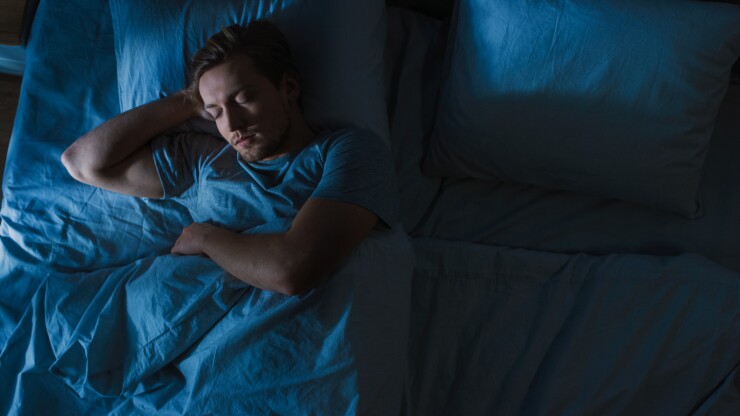Did you get enough sleep last night to be productive today?
For 43% of workers, accomplishing tasks and goals after a poor night of
"If someone is struggling with poor sleep, they're often doing something like getting into bed when they're not ready to sleep," says Michelle Davis, clinical psychologist and product manager at Headspace. "If someone's lying in bed and unable to sleep, really getting out of bed is the best thing you can do. Because if not, the brain is associating being in bed with being awake."
Read more:
These mistakes go beyond just doom-scrolling before bed or drinking caffeinated beverages at night, she says. Other common mistakes include not getting sunlight first thing in the morning when possible, and exercising too late in the day. Headspace's platform features mindfulness exercises that help make the user aware of what's contributing to their
Davis notes that workers have plenty to worry about given the events of the last four years, whether it's potential layoffs, inflation, COVID and chronic health conditions or caregiving responsibilities — and those worries trickle into one's sleep and into the next workday, she says.
Read more:
"Sleep is our body's way of repairing itself and resetting for the next days," says Davis. "If you don't get a good night's sleep, it can make you feel more irritable with less resilience to face obstacles. It slows you down cognitively and makes it difficult to process and make decisions. Sleep is important from a biological and mental health perspective."
Headspace's research found that 60% of workers report that bad sleep makes them feel distracted, and 25% said it has led them to call in sick. Davis emphasizes that sleep is vital to employee productivity and engagement. While the issue of sleep may seem out of employer purview, it's a main pillar of wellness.
She encourages employers to consider whether their mental health benefits offer any resources on sleep health, or if their culture is contributing to poor sleep. Employers aren't truly getting the best out of their workforce if they aren't getting a good night's rest.
Read more:
"People who are getting good sleep generally have better emotional well-being and are more productive," says Davis. "Addressing sleep health means getting the most bang for your buck."






